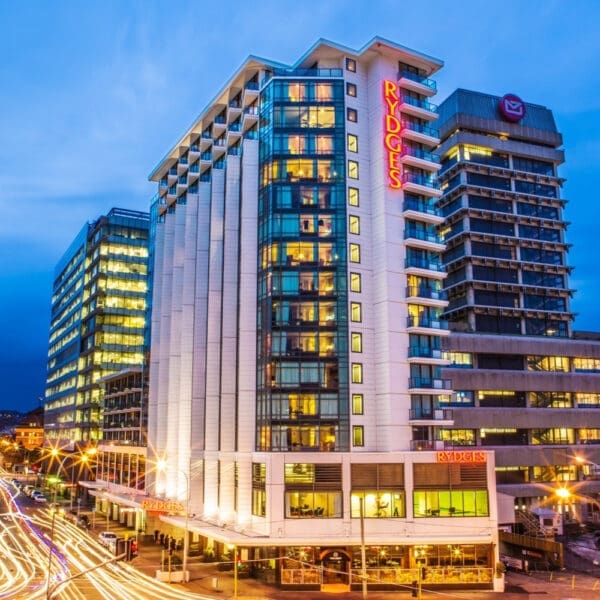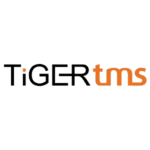
Rising costs, changing booking trends, good leaders, and even the weather…are just some of the things that have influenced the performance of hotels so far this year. So what are hoteliers doing to remain competitive in this climate, and what opportunities and challenges are they facing in the road ahead?
In September 2024, I gathered over 20 hoteliers and inudstry experts to explore five pertinent issues 1) 2024 Performance, 2) Revenue Generation, 3) Staffing and Leadership, 4) Marketing and Demand and 5) Technology and Vendors. Over the course of the discussions recorded and available in podcast, our experts and hoteliers confronted the challenges and the solutions they have been exploring. Hospitality Discussions (part 1) – 2024 Performance is available now to listen.
The hospitality industry in 2024 has been marked by unpredictability and a series of challenges. Roaming from fluctuating booking patterns to rising costs, there has been plenty to test the resilience and adaptability of hoteliers this year.
One key trend this year has been the overall drop in demand for hotel rooms. Commentators have been predicting this for a while, citing the comedown of post-Covid ‘revenge travel’ and inflationary pressures (PwC). Although global hotel revenue per available room (RevPAR) stayed high during the first half of 2024 – 13.2% above 2019 levels – demand is normalising, if not falling, in hotels across the world (JLL).
“Certainly rates and occupancy grew very nicely in 2023, but we reached a plateau where we couldn’t really push rates any further,” Jon Siberry, Group Revenue Manager of Sarova Hotels explained. “Any increase in revenue is going to come through occupancy, so 2024 has been a bit more of a push. We’ve got to be a bit more strategic, use our skills a lot more to grow that occupancy.” Hoteliers across the world have reported similar trends, particularly in the luxury end of the market.
At a Hospitality Discussion event in September 2024, Travel Market Life gathered over 20 hoteliers and industry experts to delve into five core industry issues which are available through a five-part podcast series. In the first episode, we look at;
What else 2024 has brought hoteliers, and how are they navigating these complex waters.
Massive fluctuations in bookings
Many hoteliers have noticed huge variations in bookings in 2024, with much less consistency than in previous years. “It’s been very hit and miss,” said Jane Pendlebury, CEO of HOSPA. “One week everything seems to be going fantastically, and the next week we’re forecasting next to nothing for the following month. It’s been one of the hardest years to predict.”
With periods of high performance followed by a sudden drop in bookings, it’s been a rollercoaster year for hotels. This unpredictability extends across various types of establishments, whether city-based or rural, large or small.
There are many reasons for this that hoteliers are trying to understand. One factor is that many people are now booking trips spontaneously – sometimes just a week or 10 days before departure. This short lead time makes it difficult for hoteliers to forecast demand. Weather has also played an influential role, especially in the UK. Good weather can lead to a sudden spike in bookings, while poor weather can result in cancellations and slower demand.
Skyrocketing costs
A key challenge in 2024 has been rising costs. Almost everything has become a lot more expensive, including food, staffing and utilities. In particular, energy costs continue to be a significant concern for hoteliers. Over the past couple of years, prices have more than doubled before stabilising at higher-than-normal levels. Many hotels have mitigated some of these costs through long-term contracts, but with further rises anticipated, this remains an area of focus for operational strategies.
The squeeze on operating expenses has been significant. But added to this is the fact consumer spending has tightened. One trend hoteliers are starting to notice is that travellers are allocating more of their budget to accommodation and less on food and beverage services. This affects peripheral revenue streams that are important for many hotels to remain viable.
Changing holiday styles
Competition against serviced apartments and Airbnb has been notable for hotels for a while now. However, this market appears to be reaching a saturation point. Traditional B&B operators have reported a decline in bookings compared to previous years. This could present an opportunity for hotels in the coming year or two.
However, there are some shifts in traveller behaviour that look set to last a bit longer, perhaps as a longer lasting effect of the pandemic. Some travellers still see staying in self-contained accommodations as a safer option. And many travellers are now more accustomed to a flexible booking approach, planning trips at the last minute.
Luxury leisure travel is another area that is doing relatively well in 2024. The performance of luxury independent properties has been bouncing back since the pandemic, and it’s a part of the sector that has remained strong during 2024. This resurgence has been seen in traditionally popular destinations like York and Edinburgh, but also in cities like Liverpool and Glasgow.
“Hotels have had to really look at how they can capture that leisure business, so there’s been a lot of rethinking as to how they get a slice of that pie,” said Catt McLeod, Vice President Brand Development at Elegant Hotel Collection. “Even in locations like Liverpool, for example, where you’re getting both that leisure high rate and corporate high rate, whereas, perhaps some of these northern cities wouldn’t have typically been such strong leisure destinations. And we’re seeing very, very strong production. So a much greater spread of business, both in corporate and in leisure.”
Challenges in road ahead
Overall, it’s fair to say that the performance of the hospitality industry in 2024 has been largely flat, with some regions and market segments faring better than others. The main challenges that lie ahead are around finding the right rate strategies, driving direct bookings, managing costs, and investing in the right technology and talent.
Setting rates for a year or further ahead is a difficult area for many hotels, given the uncertainties around fluctuating costs. Yet corporate clients especially want and need to secure these rates with long lead times. “Predicting, forecasting and setting budgets and rates for 12 months out is just very difficult,” Siberry said. “It’s really a finger in the air exercise. A lot of the time travel patterns have changed so much. Lead times have changed. The demographics of and the behaviour of the passengers have changed.”
Staffing has been an ongoing challenge in hospitality for a while now. But this isn’t often spoken about in the context of management and leadership roles. More hoteliers are starting to realise the challenge posed when good leaders leave. “You’ve got to employ good quality GMs and management teams that understand not just the ethics and values of managing a good team, but the technical expertise to assess trends,” said Gregor Ritchie of Optimum Hotel & Leisure Management. “Retain your management team if they’re good, because if you lose them, you set your whole strategy back months, if not years.”
Opportunities for hoteliers
With challenges come opportunities, and hoteliers say there are plenty of them looking into 2025 and beyond. Independent hotels, particularly those in the luxury market, have had to adjust to changes in both corporate and leisure travel. But they’ve found direct booking strategies have become crucial. And hotels that plan 18 months to two years ahead are better positioned to capture both leisure and corporate business. This long-term planning is necessary to navigate the competitive landscape, where branded hotels are vying for market share.
The demand for Meetings, Incentives, Conferences and Exhibitions (MICE) has been generally increasing in 2024, and commentators say this is set to increase further. In fact, the global MICE market is projected to grow from $970.76 billion in 2024 to $1,932.73 billion by 2032 (Fortune Business Insights). Hotels looking to benefit from this potentially lucrative area should be planning their strategies now.
Personalisation is another area that could give hotels a competitive advantage. “one of the things driving a lot of hoteliers at the moment is personalisation,” Pendlebury said. “I think the reality of personalisation is really kicking in now and people are expecting it. And if they don’t get it, they’re disappointed. I think that could be something that separates the wheat from the chaff – where they are able to make each guest feel independent and independently valued.”
There’s no doubt that hoteliers must continue to adapt to an ever-evolving market, staying ahead of trends in consumer behaviour, corporate travel, and strategies that will give them a competitive edge. While challenges persist, we know the industry’s capacity for resilience and innovation is there. For those willing to embrace change, there are some exciting paths forward.





















